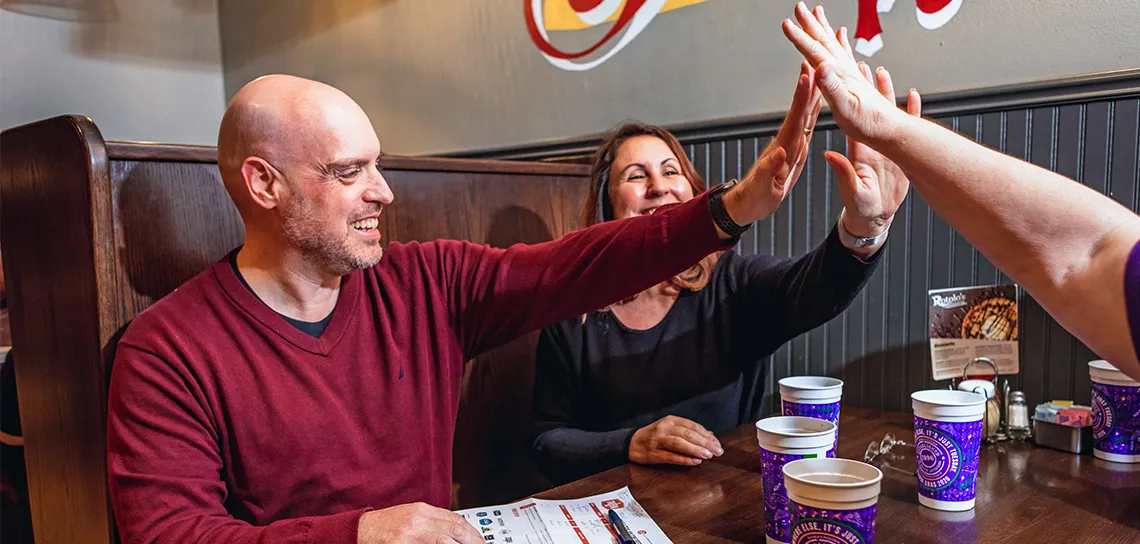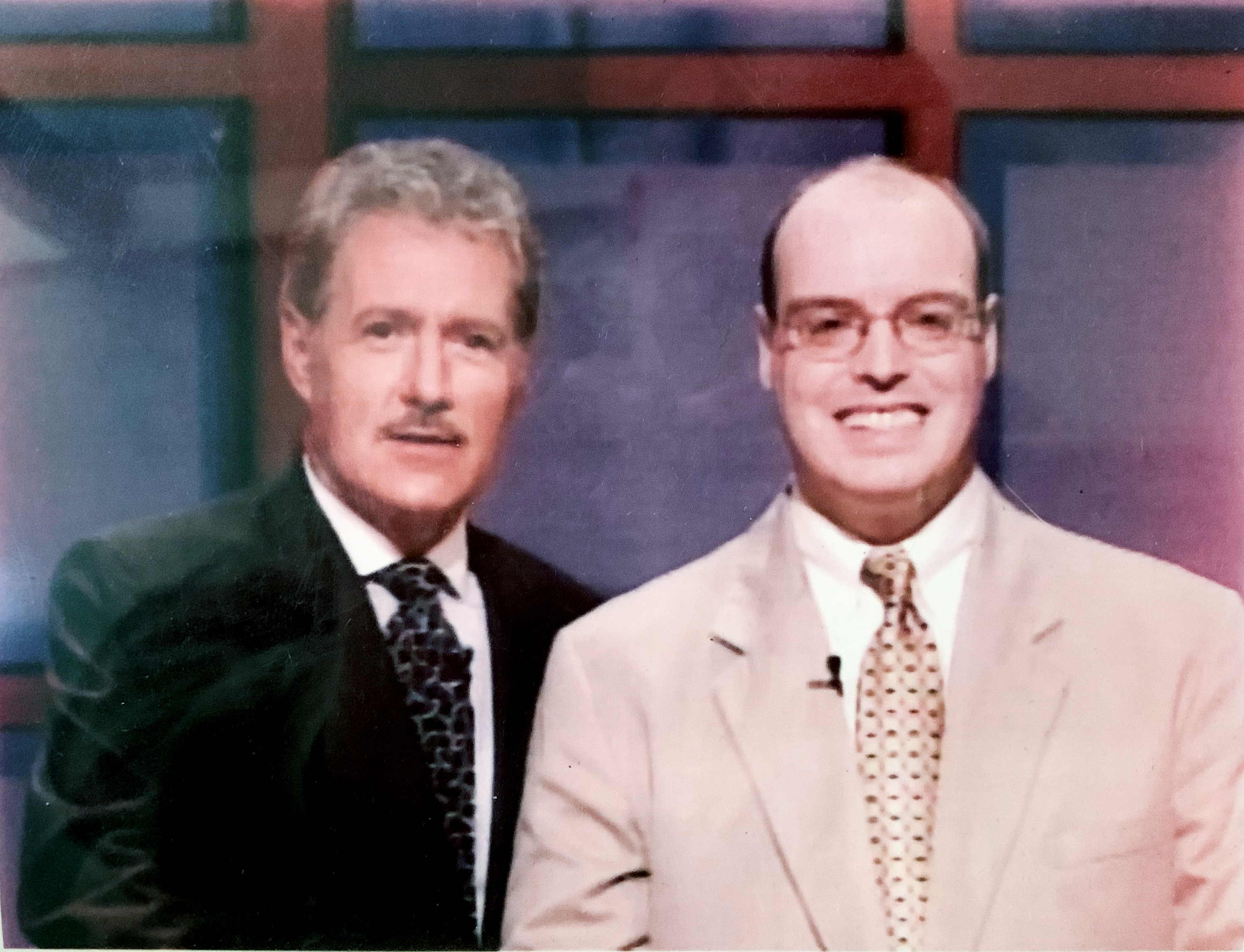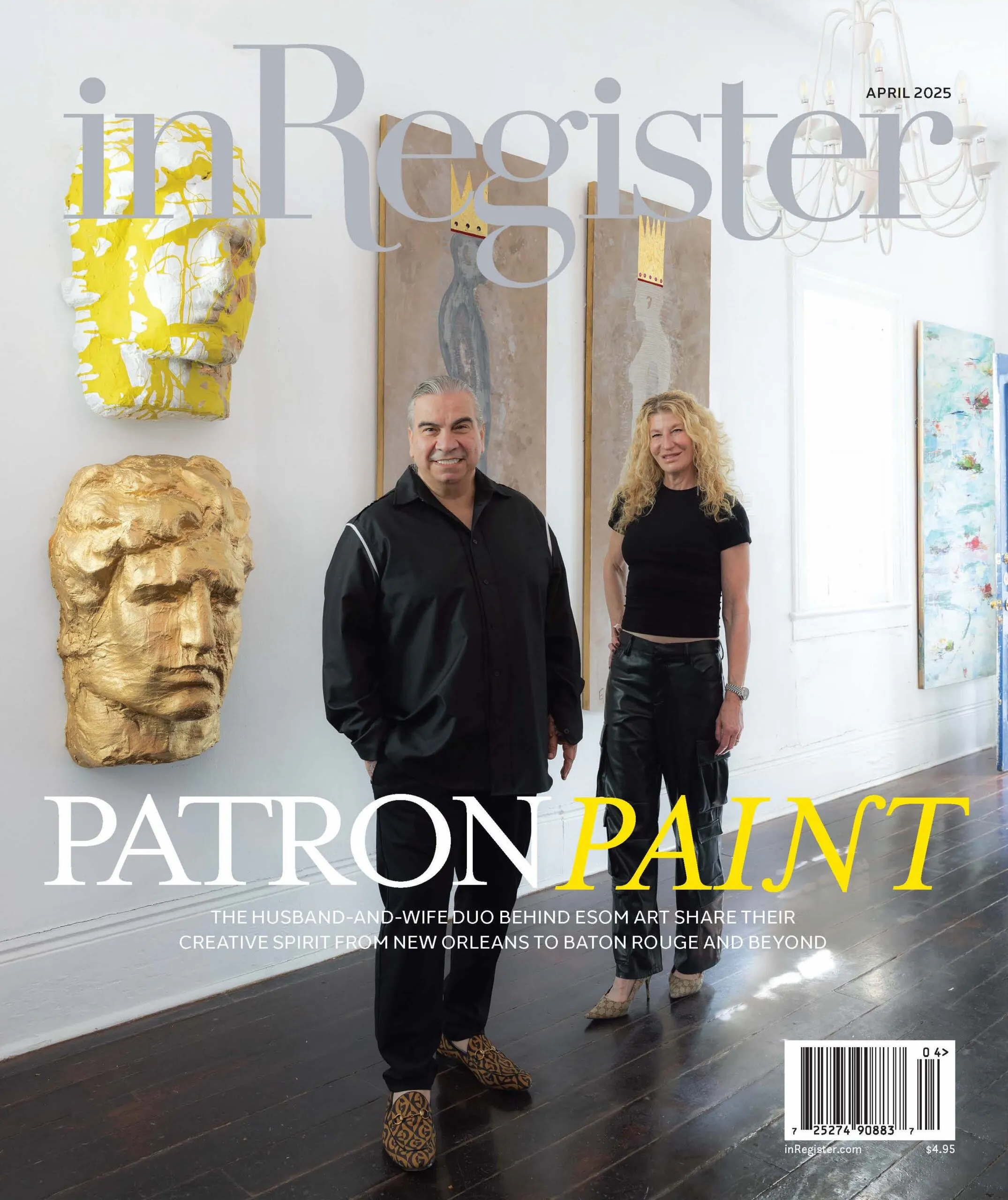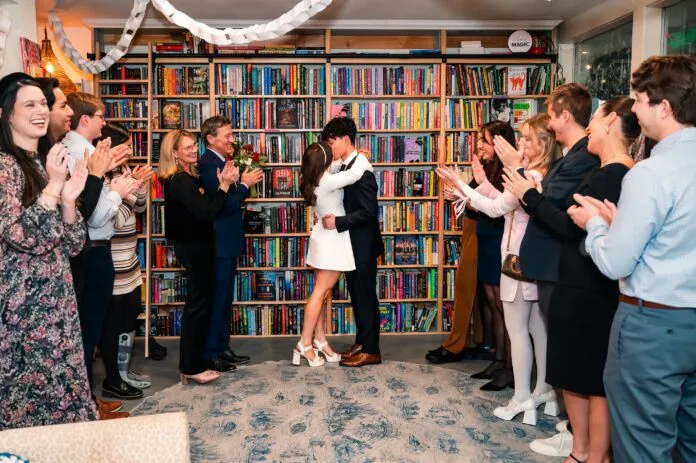
Trivial matters: Neurologist Jerry Dynes tests his own mind with games based on details
Comic books may have been the most popular reading material for many boys in the ’70s and ’80s, but Jerry Dynes was drawn to an entirely different set of pages.
“At age 10, my parents bought me a copy of Fred L. Worth’s Trivia Encyclopedia, which I pored over, fascinated with tidbits about past pop culture,” recalls Dynes. That fascination never waned even as Dynes grew up and became a neurologist. In 1999—the same year he joined The Baton Rouge Clinic and moved to the Capital City with his wife and three children—he appeared as a contestant on Jeopardy!
“The love of trivia, fun facts and minutiae—from such varied subjects as music, film, history, sports and geography—has been something I’ve had for most of my life,” Dynes explains. “My parents introduced me to older movies and music—things I still enjoy—and as a child I admit I watched a lot of television, including game shows. I gravitated towards shows like Jeopardy! and Tic Tac Dough that involved knowledge of fun facts. Then in the mid-’80s, the board game Trivial Pursuit became tremendously popular, a game that changed my life in a different sort of way—I met my future wife, Brooke, at a party playing that game. Over the years since, I’ve still kept my eyes out for new facts, keeping up with the news and pop culture.”
Earning a spot on the small screen to test his knowledge on Jeopardy! has been one of the highlights of Dynes’ own trivial pursuits. “I had heard about tryouts and visited a friend in Washington, D.C., when there was a live audition,” he says. “It started with a 50-question test on various subjects, then based on your score, you had a mock audition game. If you do well in that game, you’re put in a pool of eligible contestants, but many of those people never get the call.”

But Dynes’ telephone did ring, and he was beckoned to Los Angeles to stand across the stage from Alex Trebek. “The first time you meet Alex is when you play your game, which goes by quite quickly once it starts,” he recalls. “As most know, it’s not always about knowledge, but also how well you get adjusted to the buzzer. Ring in too early, before the end of the question—lights, unseen at home, on the side of the board help guide you—and your buzzer gets blocked for a fraction of a second; buzz in too late and someone beats you to the answer.”
During the first round, Dynes says he struggled with timing and answered very few questions. He found his rhythm during the Double Jeopardy round but couldn’t catch up in time. “I also had to risk more that I wanted on a Daily Double on ‘Philanthropists’—yuck!” he says. “So I got second place and a wonderful trip with my wife to the island nation Grenada.”
Dynes’ greatest regret about his TV trivia adventure is that he can’t try to redeem himself, since those who appear on the show are not eligible to play again. “Like most contestants, there’s always the belief, as delusional as it may be, that you could do better if you had another chance,” he says. “But I view it as a wonderful experience.”
Today, Dynes satisfies his competitive spirit by testing his knowledge in a trivia league that puts on live hosted games in local restaurants and bars. “Our league is Challenge Entertainment, which has games throughout Louisiana and in several other states,” he says. “Of course, anyone at the restaurant can play, but typically there are regular teams that come weekly to the venue to play. As you tend to encounter the same teams week after week, friendships as well as rivalries—including some trash talking—can definitely occur.”
Dynes’ team, made up of family members and close friends, is known as either “Pismo Beach” or “Wrong Turn at Albuquerque”—both references from old Bugs Bunny cartoons—depending on which location they’re playing at on any given evening. “Week to week, winners pick up gift cards for the restaurant; in addition, teams achieve points for the ranking each week. At the end of the year, the points leaders qualify for regional and national tournaments.”
Some of Dynes’ personal passion projects help to keep his trivia game strong. “For the past five years, I’ve been going through the 1001 Books You Must Read Before You Die list,” he says. “I’m up to 317, so I have a way to go. In addition, my wife and I have been watching the films from the 1001 Movies You Must See Before You Die list.”
So how does one excel at trivia contests? Dynes explains that it’s helpful to have a broad range of knowledge, given the diversity of topics presented. His own biggest loves have always been music and movies, and he confesses that at one point his film collection was over 3,000 films and his music collection contained over 10,000 albums. “My wife is certainly happy with the streaming age as my music and film collections no longer take up an entire room of the house,” he says.
Dynes observes that even people who feel they’re not good at trivia seem to light up when they hear a certain question they remember. “Although trivia may seem nerdy—and I’m not denying this—it’s a hobby that really brings people together regardless of age. It’s something anyone can enjoy.”
For this self-professed “trivia-holic,” gathering facts is akin to collecting items—like those thousands of movies or albums Dynes once had, or the stamps he once amassed. “Discovering a weird factoid that you’ve never heard before can be as fun as, say, finding that rare album or comic book,” he says. “Still, there’s something about trivia that goes beyond these things—it’s a window into the history of pop culture of current and past generations, something intangible that goes beyond the history books.”
And pursuing this hobby might even help the mind stay strong, a fitting result for this neurologist. Though much about memory is unknown, he says that research suggests that mental activity and stimulation like games, puzzles, music and probably even learning trivia can help build connections between healthy nerve cells and build up cognitive reserves that might help as we age. “As a neurologist, I advise my patients concerned about memory to keep their brains stimulated with mental exercises,” he says. “Though we can’t avoid the natural changes in our recall system with age, I can only hope my love of trivial knowledge will armor me from significant change as I get older.”











